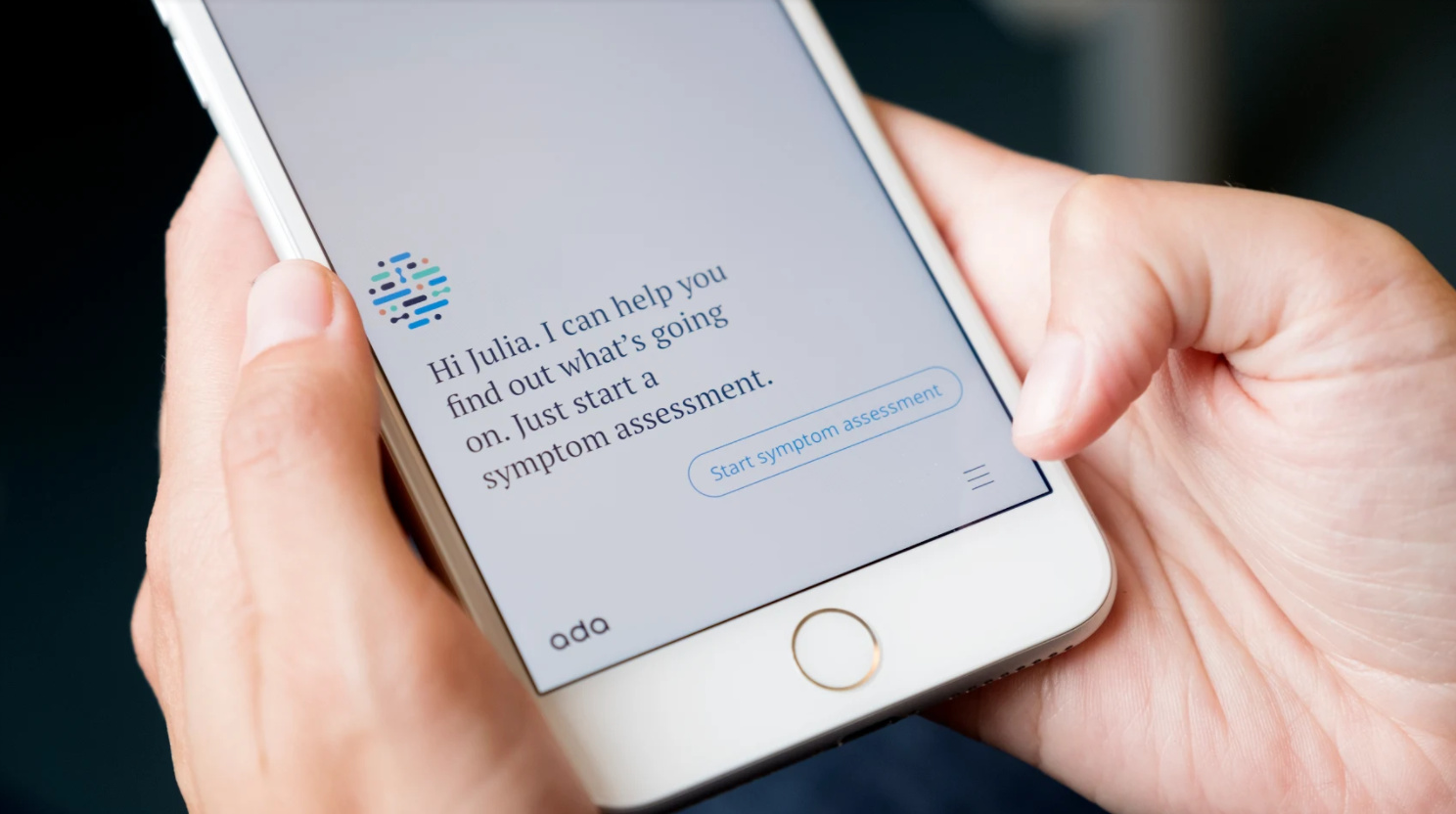
Ada Health makes an AI-based symptom checker. It recently raised $90 million in funding. Photo credit: Ada Health
Bayer’s investment arm led a $90 million investment into Ada Health, a startup that has built an AI-based chatbot, as the two companies iron out the possibility of a broader partnership.
The investment was part of a broader strategy to invest in technologies that “drive digital change in healthcare,” Dr. Jürgen Eckhardt, head of Leaps by Bayer, said in a news release.
Other investors in the round included Samsung Catalyst Fund, Vitruvian Partners, Inteligo Bank, F4 and Mutschler Ventures.
Ada Health started in 2016 with a symptom-checker app that resembles some of its chatbot competitors, such as Babylon and Buoy Health. The idea is also similar: to help navigate patients to the right care in a system where seeing a physician can take weeks — or longer.
But the Berlin-based startup looks to differentiate itself from the rest through its studies, including one published in BMJ Open, which compared several chatbots’ accuracy in evaluating clinical vignettes to general practitioners. Although Ada’s app covered the broadest range of ages and conditions, at the end of the day, the doctors were the most accurate.
To date, the company says its app has conducted more than 23 million assessments.

A Deep-dive Into Specialty Pharma
A specialty drug is a class of prescription medications used to treat complex, chronic or rare medical conditions. Although this classification was originally intended to define the treatment of rare, also termed “orphan” diseases, affecting fewer than 200,000 people in the US, more recently, specialty drugs have emerged as the cornerstone of treatment for chronic and complex diseases such as cancer, autoimmune conditions, diabetes, hepatitis C, and HIV/AIDS.
With the new funds, Ada plans to build out its business in the U.S., as well as the technology behind its symptom checker. Competitor Babylon recently announced similar plans, having recently bought two California-based physician practices.
In the meantime, another competitor, K Health, is also stepping up its game, recently striking a joint venture with Anthem to build AI-based technologies for consumers, employers and insurers.













